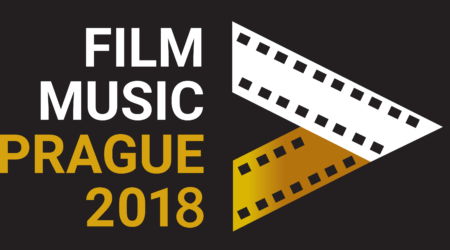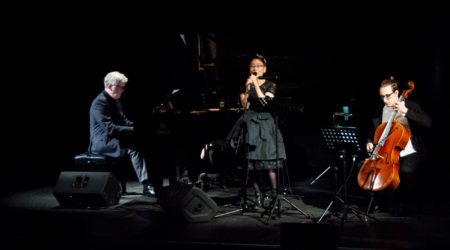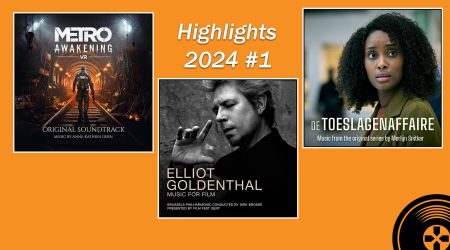During the Krakow Film Music Festival I had the honor of interviewing Oscar-winning composer Elliot Goldenthal. His music is from out of this world: there is no other composer who writes such unique music as Goldenthal, and not just for movies, but also stand-alone classical pieces, ballet and opera. It was an amazing opportunity to have a peek into his creative mind. The setting for this interview was different from what I am used to, because I collaborated with Sandro Forte from the website Cinetalk.net, whom I met at the festival and who was a pleasure to talk to and work with during the whole event. With his help, the interview changed into a pleasant conversation with the brilliant composer, which lasted more than half an hour and during which we talked about the festival, influences, directors and the concept of silence. The conversation took place on June 2, 2018.
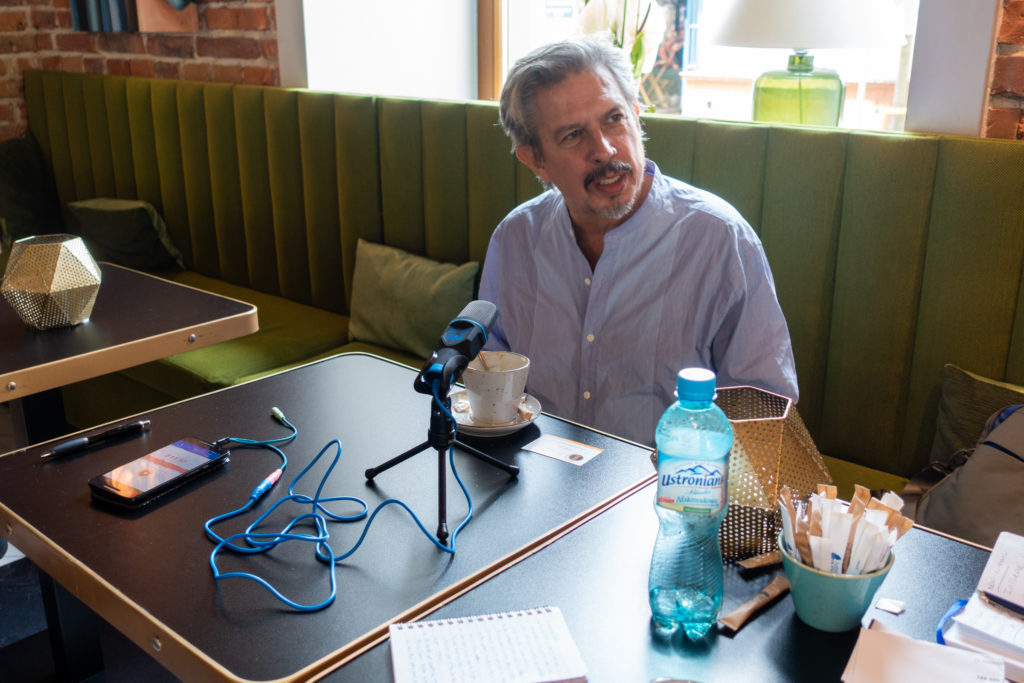
Anton Smit: As a very creative and talented composer, with very innovative ways of creating sounds and melodies: What are your influences for creating them?
Elliot Goldenthal: In cinema it is always reacting to the image. Sometimes it is the pace of the editing, other times it is the intent of the director. Sometimes I score character development in characters with leitmotifs and sometimes I don’t. If it is a romantic movie, for example, it is a more melodic theme that goes into something. In an action movie, I sometimes take a cue from the editor and try to set up a pace. If it is a Science Fiction movie, it is often about creating an environment: a ‘textural sonority’ for a character. I always look at the movie and take cues, and of course, if I repeat myself, it is the will of the director. It is a director’s movie unless the director specifically wants you to write songs. If you write songs, you, usually, have to write them before you have seen the movie, because choreographers, singers and chorus sometimes have to rehearse before the movie is even shot. They have to know the song and to sing it on stage. That happened very much in Frida. In Titus, for example, the whole opening had to be rehearsed and choreographed, with the singers, the chorus and all the marching soldiers. That had to be done weeks before the movie was shot, so that they are prepared.
AS: But you also composed pieces outside of movies like the Concerto for Trumpet and Strings that was performed here in Krakow.
EG: A yes, the main influence for that is architecture. I usually work on very small intervallic ideas. Sometimes it is just general ideas. In the trumpet piece I wanted to have a slow expanding tone: a poem in the beginning and expanding the range and melody in a slow fashion over a period of like 14 or 15 minutes, expanding with very slow note values. The tempo is 40 or 50 beats per minute or even slower. The second movement is very nervous, contrasting, changing of tempos and increased difficulty in technique. In long works, like a work of an hour, the most important thing is architecture.
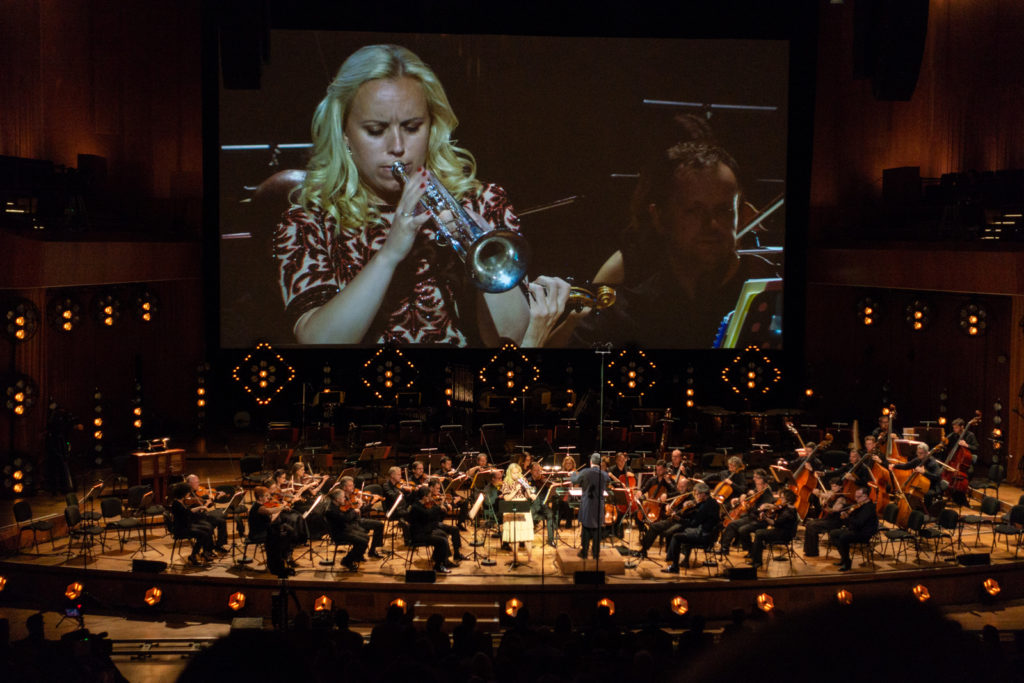
AS: You mention that if you work on a movie, it is most of the time the director’s movie. How do you deal with those limitations for being creative?
EG: There is when you can really be creative, because you have to sort of psychologically analyze what the intentions of the director are. You have to go beyond yourself sometimes, or you have to go into yourself to find the impulse the director is looking for. Collaboration is another way of being creative, by sharing a concept and seeing where it takes you. It is more of a communal thing. Even a football team all together can be creative, remember all the wonderful Brazilian football teams, when they were at their best, they seem to be working as a group: together in collaboration as a very creative organism. Sometimes you are creative on your own, but you have to share it. You have to feel the creative spark of the director: take that in and incorporate it with yourself so that it works as one.
Sandro Forte: The other day, you mentioned, that there was a moment of silence with composer Krzysztof Penderecki. Silence seems important for you?
EG: It is, and more and more important, because I think there is too much noise in the world. Everything has to be filled with some sort of mechanized, repetitive, same thing sound – EDM music. Turn on the television, with loud commercials. It is nice to hear the random beautiful world of the ocean or the forest or the quietness of the desert. The first movement of my trumpet concerto was inspired by the stillness and nature that you can get. The second, possibly, was inspired by the changing rhythms and tempos of the city. Also, the space between and air around notes, I did not want to fill in too much. I was thinking about the paintings of Basquiat, how he has open spaces.
Penderecki and I were just sitting there. We had nothing to say, we were very happy to be with each other, and all of the sudden we said one thing and another hour passed and said another thing.
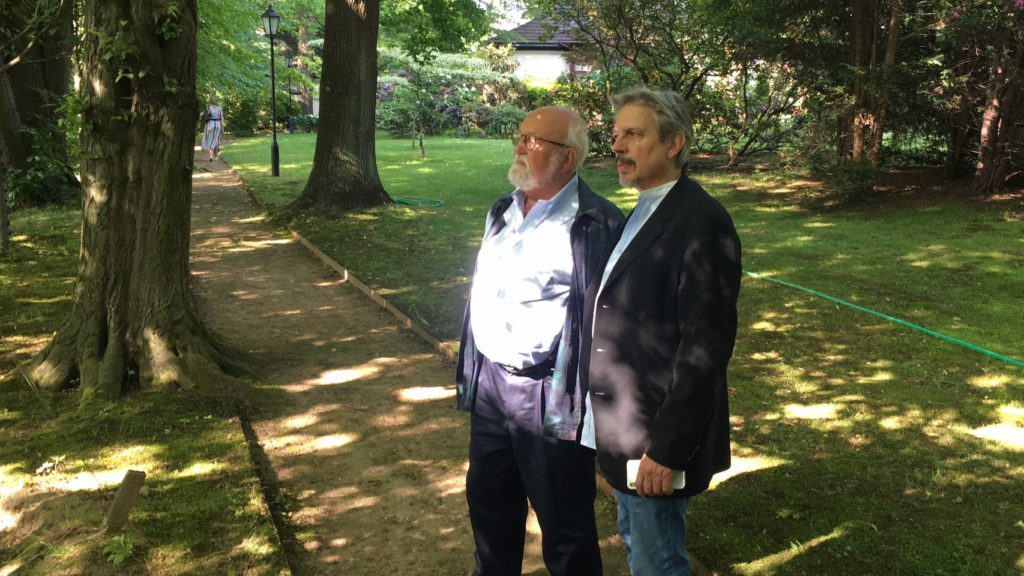
SF: Does that frighten directors when you do that?
EG: No, I kind of adjust to people. Directors usually are on a quick schedule and they want to hear a lot of information very fast. But everyone is different
AS: You have won an Oscar for best score for the movie Frida. After winning such a grand award, does that change how you are writing your music?
EG: Usually, you end up working less. Less people will call you up, because they think you are too expensive. No one will ask you to work. No, it did not change me in any way – I don’t think. The only way it will probably change me, is that they will mention it on my obituary, when I die – a little line down there: “An Academy Composer has died today. Age 107.”
AS: At the concert tonight, we will be hearing your suite from Final Fantasy: The Spirits Within, what can the audience expect from that piece?
EG: It is reduced from more than an hour of music to like 11 minutes. It is gonna be very compact. A lot of brass, a lot of quick string writing, a very big romantic orchestra, a piano solo and a very lyrical melody. In general, it is a big orchestral sound.
SF: About your relationship with the festival, did it change your way to see music?
EG: I get a lot of love from the people in the festival that work here, and also the journalists and the fans that come here. It is a rare thing to have ten thousand people show up to a film concert. In the United States that just does not happen, because it is a very rare situation. It is a wonderful thing to feel positive enthusiasm for something. Especially the way the world is going now. There is too much negativity. Everyone is there to relive the moments in cinema and enjoy the art of composers. It is a good thing, and many people come here from all over Europe for these festivals and leaving the politics behind.
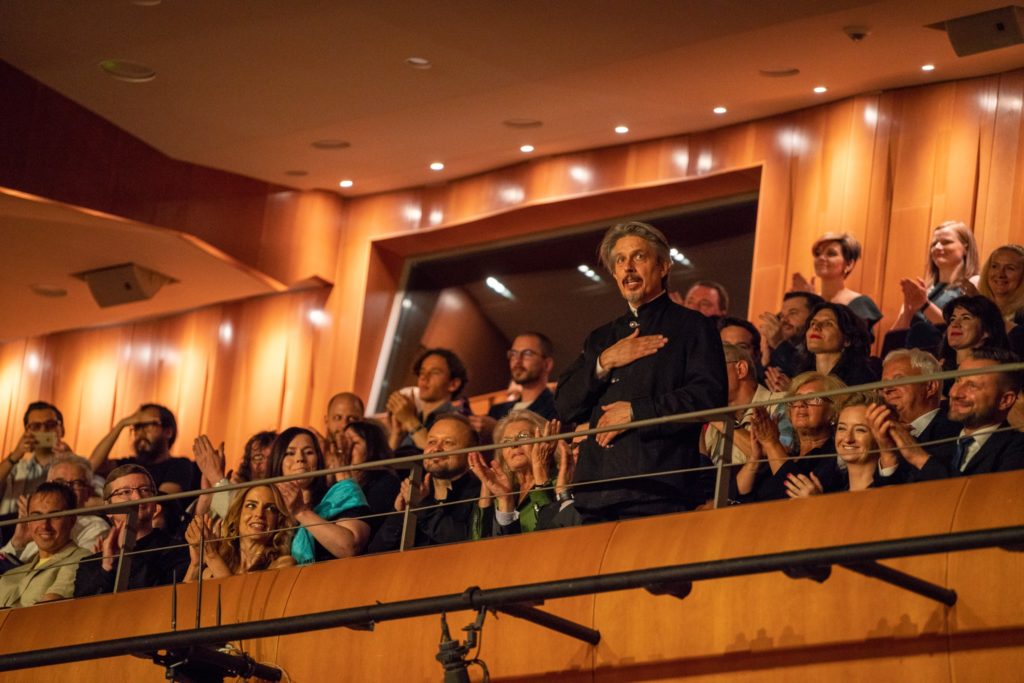
AS: You are born and still living in New York. What is your relationship with the city?
EG: The most important relationship with the city is that I grew up there. I was very lucky to have so many great musicians were playing in different styles. As a 14 or 15-year-old, I could go every Saturday on the subway to see Charles Mingus, Miles Davis, Dizzy Gillespie or Ornette Coleman. At the same time see Leonard Bernstein, New York Philharmonic and have visiting orchestras coming. Also, being surrounded and living with my friends who were all diversified and came from different cultures and to learn their dances and cooking. You are not a tourist, you are actually a native of a place that brings in so much culture, not necessarily high culture but just the lifestyles of people. It is very nurturing that way. Even the fact that I was lucky enough to go to the Woodstock Festival. All that great music for four days and to hear those musicians live. When Hip-Hop was being developed in New York, you saw it from the beginning. That type of art.
In Brooklyn, you also had Reggaeton, an expansion of Reggae music into more of a dance form. It is just lucky if you are a musician, because you have so much exposure. Also, at the time they had three different cinemas playing International movies. At a early age you are exposed to movies of Kurosawa and classic Russian movies, like Eisenstein. It is not necessarily a commercial, but when you are 15 to 18 years old, you are being exposed to Fellini, Bergman and other ways of expressing cinema in different cultures. It is very nurturing for composers.
SF: Why did you not compose for that many films these last years?
EG: Oh I did one film this year, and I did a film the year before with Jane Fonda and Robert Redford, called Our Souls at Night. It is a very quiet and very peaceful film, with solo guitars – almost Bluegrass music, very acoustic and melodic. It was a very gentle movie, and I enjoyed doing that very much. As soon as that ended, I started to work on my trumpet concerto and I also had a show on Broadway in New York called M. Butterfly. So the movie, the Broadway show and trumpet concerto was a lot of work.
AS: What can we expect from you then in the future?
EG: It is the same thing you’re always expecting. I work in a theatre, on the stage in a theatre, personal concert music, opera, ballet and all of that. For films, mostly independent movies and maybe some big commercial movies, but no games probably, and very little TV, if any.

